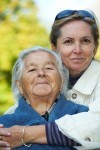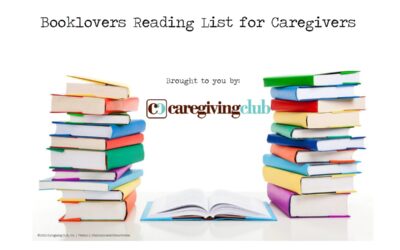 The Alzheimer’s Association released its 2012 Alzheimer’s Disease Facts and Figures report today and the underlying message is that as a nation we are facing a growing epidemic and women are more at risk … but there is hope and help.
The Alzheimer’s Association released its 2012 Alzheimer’s Disease Facts and Figures report today and the underlying message is that as a nation we are facing a growing epidemic and women are more at risk … but there is hope and help.
More than 10 million women today are touched by Alzheimer’s and other dementias – in fact, the Alzheimer’s Association estimates that every 68 seconds someone develops the disease. Of the more than five million Americans diagnosed with Alzheimer’s, two-thirds are women. In addition, 6.7 million women represent 60 percent of the family caregivers for someone living with Alzheimer’s.
The report also stated that the nation will spend $200 billion in 2012 caring for those with Alzheimer’s – this includes $140 billion covered by Medicare and Medicaid. And, since women now represent half of all U.S. employees, the impact of Alzheimer’s disease on our workplace, our health care system and our family lives is significant and growing.
Curing An Alzheimer’s Nation
While most of us think of Alzheimer’s as an “older person’s disease,” and statistics show that one out of every two Americans over age 85 will develop the disease, the reality is that many people in their 40s, 50s and 60s are showing early warning signs of Alzheimer’s or other dementias. In fact, 50 percent of those with Alzheimer’s are undiagnosed.
Alzheimer’s is now the sixth leading cause of death in the U.S. and the only disease on the Top 10 Killer List that cannot be prevented, cured or even slowed. These sobering facts are why the U.S. Congress unanimously passed the National Alzheimer’s Project Act last year that President Obama recently signed into law. This first-ever plan offers hope to millions of families already affected with the disease and provides a path to change the trajectory of this disease that will affect more and more of us as our 78 million Baby Boomers grow older and live longer.
While researchers focus on a cure, what can we do now to help those families living with Alzheimer’s? Early diagnosis and detection are critical. Knowing what you are facing will help families, and especially the family caregivers, have the time to plan ahead for future care and prepare themselves for the emotional caregiving journey known as “the long good-bye.” In addition, connecting with others to discover tools, services and support that will help are essential to combating the isolation that can come with being a caregiver. Alzheimer’s is a disease that robs the person you love of their memory and often their personality and can be devastating for caregivers.
 Hope and Help for Caregivers
Hope and Help for Caregivers
To that end, the Alzheimer’s Association has put together an aggressive campaign for awareness and comprehensive tools and support to hand-hold the caregivers through every stage of this progressive brain disease. The first step for caregivers is to review the 10 Early Warning Signs (see our slide show as well) – this will help you decide if your loved one is showing signs of dementia. If detection can be made early, families have a longer period to plan for future care while their loved one can still be involved in all the important decisions. This helps avoid family conflict and caregiver guilt as the disease progresses.
In addition to the statistical report, the Alzheimer’s Association also announced the launch of several tools including the new ALZConnected which combines the features of popular social networking sites with matching services such as the popular Alzheimer’s message boards. Here members can share tips and answers, get support from others who know what you are going through and rate the solutions so members can quickly find the best and most popular answer to a particular problem according to their peers.
There is also a host of other tools and services that help caregivers both to better care for their loved one and understand this disease, but also to care for themselves as well. Some of these tools include:
- Caregiver Stress Test – developed to help caregivers identify the tipping point of when their stress is starting to impact their health. Take the free test online and then talk to your doctor about the results and how to develop stress management techniques.
- Carefinder – a terrific tool to not only find specific Alzheimer’s and dementia care services but also tip sheets with questions to ask of these professionals
- SeniorHousing Finder® – a great tool for caregivers to locate specialized dementia care facilities by zip code when the times comes that you can no longer care for your loved one at home
- Caregiver Notebook – Developed by experts and actual caregivers, this is a great resource at your fingertips (I’m hoping the Alzheimer’s Association offers it as an eBook soon but for now it is $17.95 to order from their Web site).
- Education DVDs – there is an Alzheimer’s and Safety DVD and the latest is the Alzheimer’s and Driving videos and tips on how to have the conversation around driving retirement and alternative transportation
- Lotsa Helping Hands – create a private online community of friends, family and other volunteers that includes a calendar tool to help caregivers get the help they really need. Building a village of care through this tool will help caregivers banish the blues and burn-out that come with caregiving
- ComfortZone – a location management system that allows the person with Alzheimer’s to maintain a level of freedom and independence and give caregivers peace of mind at the same time. While many seniors are resistant to monitoring devices, with early signs of Alzheimer’s and the potential to wander and get lost, this allows Alzheimer’s patients to continue to walk to the store or favorite local activities within a perimeter so that family can be assured they are safe. Outside of the perimeter, a warning is sent to the caregiver on their computer or mobile device that their loved one may be lost and the GPS locates them in real-time.
- The Alzheimer’s site also offers information on finding support groups, how to promote brain health and other valuable information and services.
We are an Alzheimer’s nation but together we can find a cure and in the meantime give support to the men and particularly women who provide the essential long-term care and love we know as caregiving.
Click here to view our Me Time Monday video tip Alzheimer’s early warning signs
Click here to read our Me Time Monday tips for Women and the Alzheimer’s Association 10 Early Warning Signs



0 Comments